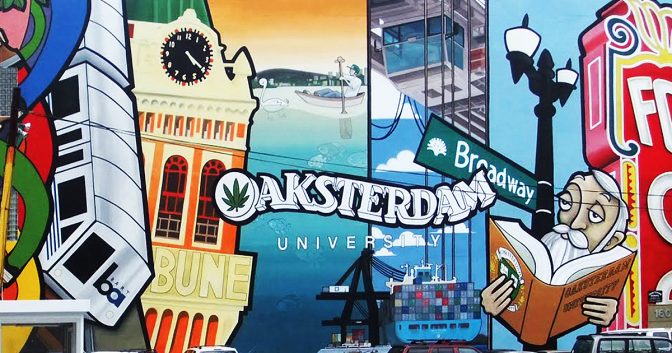Equity in Oakland: Giving Minorities a Chance

Oakland, California is tackling the diversity in cannabis issue head-on. Its Equity Program, passed by the City Council last March, was designed to help the city’s black and Latino residents, granting them 50% of new cannabis business permits for everything from cultivation to manufacturing.
As of Nov. 17, less than four months before adult-use marijuana became legal in California on Jan. 1, 129 of the 255 applications for cannabis-business permits in Oakland had come from equity candidates.
The lack of equity up until now is largely due to cities and states not allowing people with criminal records to work in the industry, hence shutting out many people from the racial and ethnic groups that have been disproportionately arrested and incarcerated for possession and sales. In 2011, 90% of all people arrested for marijuana in Oakland were black or Latino.
People from these two groups are nearly four times more likely to be arrested for cannabis possession than whites are, even though use is about the same in each group. The Equity Program was created to deal with this disparity and act as a kind of reparation.
Also See: Diversity in the New Cannabis Economy
Two types of individuals can qualify: Applicants who were arrested and convicted of a cannabis offense in Oakland since 1996, and residents of East and West Oakland, where most of the city’s marijuana arrests take place,. They also must earn less than 80% of the city’s median household income of $52,650 (approximately $10,530).
The program also created the Equity Incubator, which allows entrepreneurs to sponsor businesses run by equity candidates. The Incubator benefits both candidate and sponsor because, if sponsors provide candidates with three years of rent or real estate for their new businesses, they get to speed up the application-approval process.
Critics of the program say the qualifications are too restrictive, it’s hard for applicants to prove they’re eligible and the paperwork requirements are arduous. Some potential business owners can’t apply because they were priced out of their homes in East and West Oakland due to gentrification, and therefore don’t meet the 10-year residency requirement. But despite the program’s imperfections, it’s still revolutionary, and is rolling out relatively smoothly.
Hopefully, other cities and states will follow Oakland’s lead and provide opportunities for those hit hardest by the War on Drugs.
If you enjoyed this Freedom Leaf article, subscribe to the magazine today!

